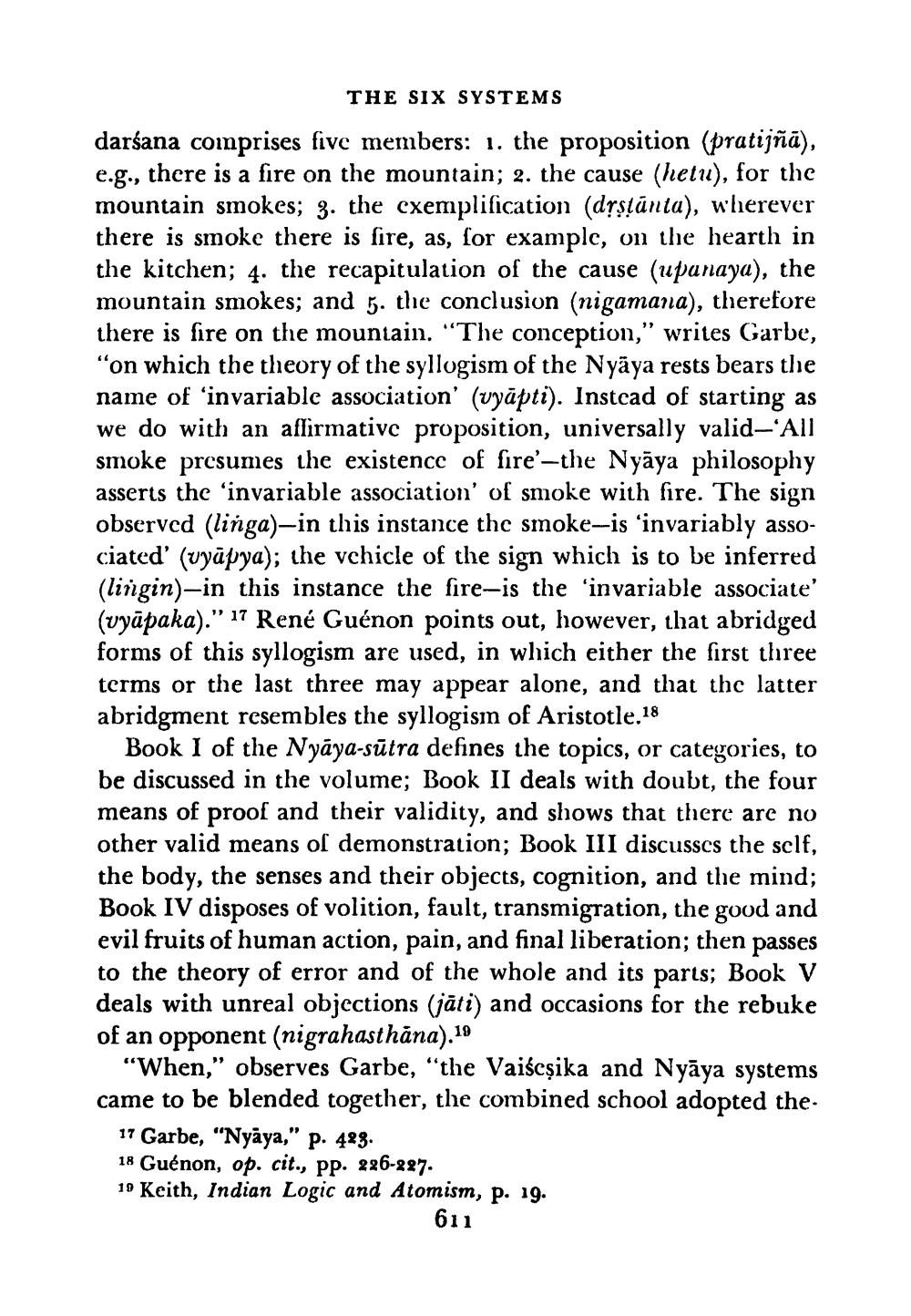________________
THE SIX SYSTEMS
darśana comprises five members: 1. the proposition (pratijñā), e.g., there is a fire on the mountain; 2. the cause (hetu), for the mountain smokes; 3. the exemplification (dṛṣṭānta), wherever there is smoke there is fire, as, for example, on the hearth in the kitchen; 4. the recapitulation of the cause (upanaya), the mountain smokes; and 5. the conclusion (nigamana), therefore there is fire on the mountain. "The conception," writes Garbe, "on which the theory of the syllogism of the Nyaya rests bears the name of 'invariable association' (vyāpti). Instead of starting as we do with an affirmative proposition, universally valid-'All smoke presumes the existence of fire'-the Nyāya philosophy asserts the 'invariable association' of smoke with fire. The sign observed (linga)-in this instance the smoke-is 'invariably associated' (vyāpya); the vehicle of the sign which is to be inferred (lingin)-in this instance the fire-is the 'invariable associate' (vyāpaka)." ." 17 René Guénon points out, however, that abridged forms of this syllogism are used, in which either the first three terms or the last three may appear alone, and that the latter abridgment resembles the syllogism of Aristotle.18
Book I of the Nyāya-sūtra defines the topics, or categories, to be discussed in the volume; Book II deals with doubt, the four means of proof and their validity, and shows that there are no other valid means of demonstration; Book III discusses the self, the body, the senses and their objects, cognition, and the mind; Book IV disposes of volition, fault, transmigration, the good and evil fruits of human action, pain, and final liberation; then passes to the theory of error and of the whole and its parts; Book V deals with unreal objections (jāti) and occasions for the rebuke of an opponent (nigrahasthāna).10
"When," observes Garbe, "the Vaiścşika and Nyaya systems came to be blended together, the combined school adopted the
17 Garbe, "Nyaya," p. 423.
18 Guénon, op. cit., pp. 226-227.
19 Keith, Indian Logic and Atomism, p. 19.
611




